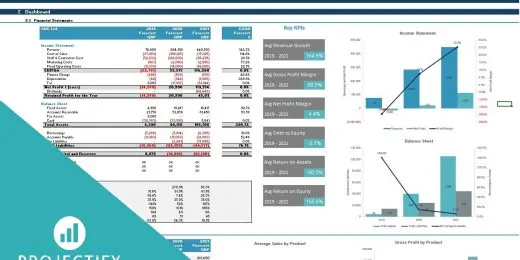Optimize Your Strategy: A Deep Dive into Finance Terms 101

Understanding finance terms is crucial for optimizing your strategic planning and decision making. Mastering this lexicon can significantly enhance your business acumen and investment prowess.
Navigating the world of finance requires a firm grasp of key terminology. Whether you’re a budding entrepreneur, a seasoned investor, or simply looking to manage your personal finances more effectively, the ability to understand and utilize finance terms is essential.
This foundational knowledge provides the toolkit needed to dissect complex financial concepts, engage in informed discussions with professionals, and make strategic decisions that are sound and profitable. Our deep dive into Finance Terms 101 aims to break down the jargon barrier, offering clear and actionable insights. It’s designed not just to expand your vocabulary, but to empower your financial decision-making, ensuring you’re equipped to approach money matters with confidence and clarity.
Finance Terms Demystified
Welcome to ‘Finance Terms Demystified’, your go-to guide for deciphering the language of finance. Understanding finance terminology is crucial, as it shapes our grasp of various economic phenomena. Let’s embark on a journey to make finance jargon more accessible and useful for your strategies and decisions.
Common Jargon In Finance
Finance is filled with complex terms that can be overwhelming. Here, we simplify those terms into plain language. For an easy start, let’s look at some of the most common finance terms:
- Asset: Something valuable you own.
- Liability: Something you owe to others.
- Equity: The value of an ownership interest in property, including shareholders’ equity in a business.
- Bonds: Loans to a company or government that pays investors back with interest.
- Stocks: Shares that mean you own a part of a company.
These terms are the building blocks of numerous financial concepts. Understanding these will open doors to more complex discussions.
Why Terminology Matters
Knowing financial terms is more than just academic; it’s practical. It gives you confidence. Let’s find out why that matters:
- Clear Communication: When everyone understands the terms, communication is effective.
- Better Decisions: Understanding terms means you can make smarter financial choices.
- Financial Literacy: Being literate in finance leads to a healthier financial life.
Grasping these concepts means you can navigate the financial world with more ease. For optimized strategies in finance, start by mastering the terms. It’s the key to unlocking your financial potential.
The Language Of Money
The Language of Money is not just a collection of jargon and complicated terms. It’s the key to unlocking a world of financial wisdom. Whether you’re a newbie investor or a seasoned pro, understanding the vernacular of finance is crucial. Let’s swim through the sea of finance language and make sense of the ‘euros and cents’ of it all.
Understanding Currency And Market Lingo
Grasping the basic currency and market terms allows you to navigate financial updates with ease. Here’s a quick rundown:
- Forex: Stands for foreign exchange. It’s about trading currencies.
- Bull Market: Prices are going up. Investors feel confident.
- Bear Market: Prices fall. Investors are cautious.
- Inflation: Prices for goods climb. Your money buys less.
- Deflation: The opposite of inflation. Goods cost less.
Currency terms are not just for travelers. They are essential for global business and investments.
Deciphering Investment Speak
Investing comes with its own language. Knowing these terms can help you make informed decisions:
| Term | Definition |
|---|---|
| Portfolio: | Your investment collection. |
| Dividend: | Profit share from investments. |
| Asset Allocation: | Investment strategy balance. |
| Index Fund: | Tracks market index performance. |
| Yield: | Investment income percentage. |
Dive into investment books or online courses to build your vocabulary. Explore different asset classes to find what fits your goals. Chat with a financial advisor to understand these terms further.
Budgeting Basics
Mastering Budgeting Basics is crucial for financial success. A clear budget guides spending choices. Knowing key terms makes planning a budget simpler. A strong grip on budgeting lingo paves the way for sound financial management.
Identifying Key Budget Terms
Understanding budget terms is like learning a new language. It empowers you to manage your finances effectively. Let’s start with some vital terms:
- Income: Money you make from work or investments.
- Expenses: Bills and costs for things you need or want.
- Savings: Money set aside for the future or unexpected costs.
- Balance: The difference between your income and expenses.
- Deficit: This shows when expenses are higher than income.
- Surplus: When income exceeds expenses, you have a surplus.
Strategic Planning With Financial Vocabulary
Once you know budgeting terms, plan your finances better. Use your knowledge to make strategic decisions.
| Term | Definition | Importance |
|---|---|---|
| Cash Flow | Money coming in and going out. | Tracks liquidity for business health. |
| Fixed Costs | Regular, unchanged expenses. | Helps foresee monthly expenses. |
| Variable Costs | Expenses that can change each month. | Identify areas to adjust spending. |
| Return on Investment (ROI) | Profit made from a specific investment. | Evaluates investment successes. |
Use these financial terms to analyze spending. Cut unnecessary costs. Save more money. Grow your wealth. Knowledge is power, especially with budgeting basics.
Credit And Loans Clarified
Understanding credit and loans is vital for making smart financial decisions. Let’s demystify these terms to better manage personal finances and business operations.
Essential Credit Terms
Credit is more than just a card in your wallet. It’s your financial trustworthiness. Lenders look at your credit score, a number that speaks for your ability to pay back.
- Credit Report: Your financial history’s paper trace.
- Credit Score: A grade for your credit health.
- Interest Rate: The cost you pay to borrow money.
- Annual Percentage Rate (APR): The yearly cost of credit.
Master these terms for a silent nod from banks.
Navigating The World Of Loans
Loans can be your ally in achieving big goals. They come in different shapes and sizes, tailored for diverse needs.
| Type of Loan | Purpose | Description |
|---|---|---|
| Personal Loan | Varied Personal Use | Unsecured, fixed payments. |
| Auto Loan | Vehicle Purchase | Secured by the vehicle. |
| Mortgage | Home Purchase | Secured by the home. |
| Student Loan | Education | For college expenses. |
Choose wisely, understanding the terms, to power your dreams without a hitch.
Investment Terminology
Welcome to the intricate world of investment terminology, where the right words can open the door to smart financial choices. With a plethora of terms and concepts, understanding investment jargon is crucial for anyone diving into the financial markets. Whether you’re a seasoned investor or just starting, this deep dive will clarify some of the fundamental phrases you need to know.
Stock Market Lexicon
Navigating the stock market can seem like a daunting task. Key terms to grasp include:
- Bull Market: A market on the rise, where confidence is high.
- Bear Market: A market on the decline, marked by widespread pessimism.
- IPO (Initial Public Offering): A company’s first sale of stock to the public.
Understanding these terms helps you follow market trends and make informed decisions.
Real Estate Investment Vocabulary
Real estate investment comes with its own set of terms. Here’s what investors need to know:
| Term | Definition |
|---|---|
| REIT | Real Estate Investment Trust, a company owning income-producing real estate. |
| Leverage | Use of borrowed money to increase the potential return of an investment. |
| Cash Flow | The net amount of cash being transferred in and out of a property. |
Real estate vocabulary empowers investors to understand property-related discussions and opportunities.
Tax Talk
Welcome to our comprehensive ‘Tax Talk’ where we break down finance jargon into simple terms. Understanding tax terminology is crucial for optimizing your financial strategy. Let’s jump right into the key phrases and strategies that can save you money.
Crucial Tax-related Terms
To navigate the world of taxes, know these essential terms:
- Gross Income: Your total earnings before taxes.
- Net Income: Your earnings after taxes and deductions.
- Tax Deduction: Expenses that reduce your taxable income.
- Tax Credit: Amounts that reduce the tax you owe, dollar for dollar.
- Withholding: Tax taken from your paycheck beforehand.
- Audits: Reviews by the IRS to verify tax information accuracy.
Maximizing Deductions And Credits
Pay less tax by maximizing these:
| Deduction/Credit | Description | How to Maximize |
|---|---|---|
| Standard Deduction | A flat amount reduced from your income. | Choose this if it exceeds itemized deductions. |
| Itemized Deductions | Specific expenses like mortgage interest and charity. | Keep receipts and track expenses throughout the year. |
| Child Tax Credit | Reduces tax for each qualifying child you support. | Ensure you meet criteria with current tax law. |
| Educational Credits | For college costs. | Use Form 8863 to claim the American Opportunity Tax Credit or Lifetime Learning Credit. |
Risk And Return
A smart investor knows the dance of risk and return. These two elements move together in the finance world. Think of them as a seesaw. On one side, you have risk, and the other, return. Understanding how they balance is key to smart investing. Let’s untangle these concepts to master your financial strategy.
Balancing Risk In Finance
In finance, taking risks can lead to rewards. But not all risks are the same. Some investments might keep you up at night, while others let you sleep easy. Here’s how to balance risk:
- Know Your Appetite: Ask yourself how much risk you can handle. This depends on your goal and timeline.
- Diversify: Don’t put all your eggs in one basket. Spread your investments across different types of assets.
- Assess Regularly: Markets change. So should your risk level. Check your investments often.
Return On Investment Explained
Return on investment, or ROI, shows how much money you make from an investment. A good ROI means more money in your pocket. Here’s what drives ROI:
| Component | Description |
|---|---|
| Profit | The money you gain above your initial investment. |
| Percentage | ROI is often shown as a percentage. This helps compare different investments. |
| Time | The time over which you calculate ROI matters. Longer can mean more return. |
Remember, high ROI often means high risk. Choose the balance that fits your style.
Emerging Financial Concepts
The financial world is evolving at an unprecedented pace. New concepts emerge often. Understanding these can be a game-changer for anyone looking to stay ahead in finance.
Cryptocurrency And Blockchain
Cryptocurrencies are digital currencies secured by cryptography. They work using a technology called blockchain. A blockchain is a digital ledger of transactions. It is public and adds security to each cryptocurrency.
Here’s a quick rundown of key terms within this sphere:
- Bitcoin: The first cryptocurrency.
- Ethereum: A cryptocurrency and a platform for creating decentralized applications.
- Altcoins: All cryptocurrencies other than Bitcoin.
- Wallet: A digital wallet stores cryptocurrencies.
- Mining: The process of gaining cryptocurrencies by solving cryptographic equations.
- DeFi: Decentralized Finance—uses cryptocurrencies and blockchain to manage financial transactions outside traditional systems.
Fintech Innovations And Their Terminologies
Fintech, short for financial technology, improves and automates the delivery of financial services. It covers a broad range of applications. Here are essential terms:
| Term | Description |
|---|---|
| Robo-Advisors | Automated investment platforms. |
| Neobanks | Online-only banks with no physical branches. |
| Insurtech | Technologies designed to simplify the insurance industry. |
| Blockchain | The tech underpinning cryptocurrencies; refers to a chain of data blocks. |
| AI and ML | Artificial Intelligence and Machine Learning—used for predictive analysis, customer service, and more. |
| Peer-to-Peer (P2P) | Platforms that allow direct transactions between individuals. |
Learning these emerging financial concepts equips individuals with the knowledge to navigate the modern finance landscape effectively.
Frequently Asked Questions
What Are Finance Terms?
Finance terms are specialized language used in the field of finance to describe concepts, processes, and financial instruments. Understanding these terms helps in making informed investment and business decisions. They are crucial for anyone looking to navigate the financial markets or manage personal finances effectively.
How Do I Understand Financial Jargon?
To understand financial jargon, start by learning the basics, such as common accounting terms, investment phrases, and market terminology. Use finance dictionaries or online resources specializing in financial education. Regularly reading financial news and publications can also build your understanding of industry-specific language.
Why Are Financial Terms Important?
Financial terms are important because they enable clear and precise communication regarding economic activities. They aid in understanding financial statements, investment analysis, and business transactions, ensuring all parties have a mutual comprehension of financial dealings, which is vital for making strategic decisions.
What Is Financial Literacy?
Financial literacy is the ability to understand and effectively use various financial skills, including personal financial management, budgeting, and investing. It’s essential for making informed financial decisions and achieving long-term financial stability. High financial literacy can lead to better financial outcomes and security.
Conclusion
Mastering the essentials of financial terminology can set you on the path to informed decision-making. This dive into Finance 101 has aimed to clarify key concepts, equipping you with knowledge to navigate monetary matters confidently. Embrace these terms; they’re the stepping stones to your fiscal success.
Keep exploring, keep learning, and let your financial acumen flourish.



















































